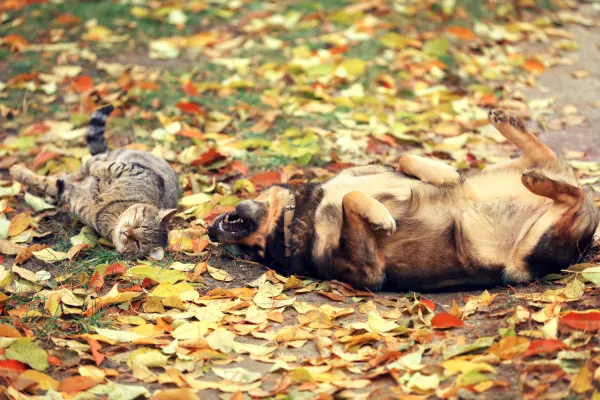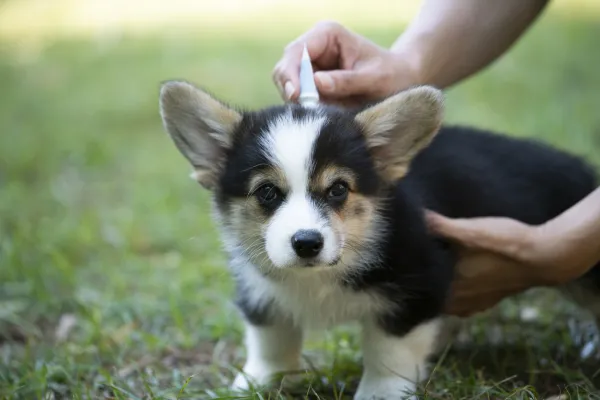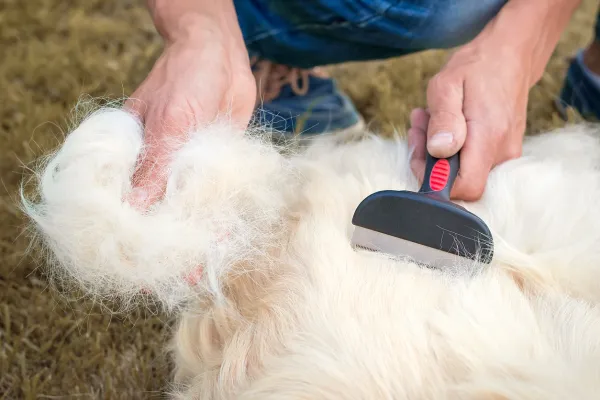Autumn signals a return to routine not just for humans, but also for our animal companions. With shorter daylight hours and dropping temperatures, our pets can feel the seasonal changes just as much as we do. You might notice your pet becoming more lethargic or experiencing a reduced appetite. Additionally, this time of year often brings a change in fur and the presence of parasites that can affect your pet’s health and mood.
To help you support your furry friend through this transitional season, here are five essential autumn care tips to ensure your pet stays happy, healthy, and well-adjusted.

One of the most important steps in autumn pet care is taking your pet for a general health check. After summer outings and adventures, it’s crucial to ensure your pet hasn’t picked up any diseases that commonly appear in autumn, such as heartworm (dirofilariasis) or leishmaniasis.
Parasite control remains just as important in fall as in summer. Fleas, ticks, and other parasites can still be active depending on your location. Continue using veterinary-approved treatments like shampoos, spot-on medications, or antiparasitic collars to keep your pet protected.
For older pets, seasonal temperature drops can worsen joint issues like arthritis, so it’s a good idea to have a vet evaluate any signs of pain or mobility problems as cooler weather sets in.

The return to work schedules and daily routines can affect pets emotionally. After a vacation with more playtime or changes in environment, they might need time to readjust.
Be patient and gradually re-establish consistent feeding, walking, and playtime schedules. This structured routine helps your pet feel secure and eases the transition back to everyday life.
Like their humans, pets may gain or lose weight during vacation periods due to irregular routines or changes in activity. With autumn's arrival, now’s the time to refocus on healthy eating:
Weigh food portions based on your pet’s weight, age, and activity level.
Choose natural, nutritious food rich in proteins, vitamins, and antioxidants to support the immune system.
Avoid overfeeding and minimize unhealthy treats.
If your pet lost weight during an active summer, ensure they’re getting sufficient calories. Conversely, if they’ve gained weight, consider longer walks and controlled portions to help them return to an optimal weight.
Autumn is shedding season for many pets. Daily brushing helps:
Remove loose fur and prevent tangles
Maintain healthy skin and coat
Detect parasites like ticks or fleas early
As humidity rises and temperatures drop, pets are more prone to skin conditions like dermatitis. Keeping them clean, brushed, and dry is essential for preventing issues and promoting comfort.

Pets are also susceptible to colds during seasonal changes. To protect them from autumn-related illnesses:
Avoid sudden temperature changes and cold drafts
Prevent contact with sick animals
Strengthen their immune system with proper nutrition or vet-recommended supplements
If your pet shows symptoms like sneezing, coughing, or nasal discharge, consult your veterinarian for appropriate care.
Autumn is a transitional season that requires extra attention to your pet’s physical and emotional health. Through regular vet visits, smart nutrition, consistent routines, and daily care, you can help your pet adapt and thrive as the weather changes.
If you found this guide helpful, you may also be interested in our article on How to Prevent Animal Cruelty.
animal tags:
We created this article in conjunction with AI technology, then made sure it was fact-checked and edited by a Animals Top editor.